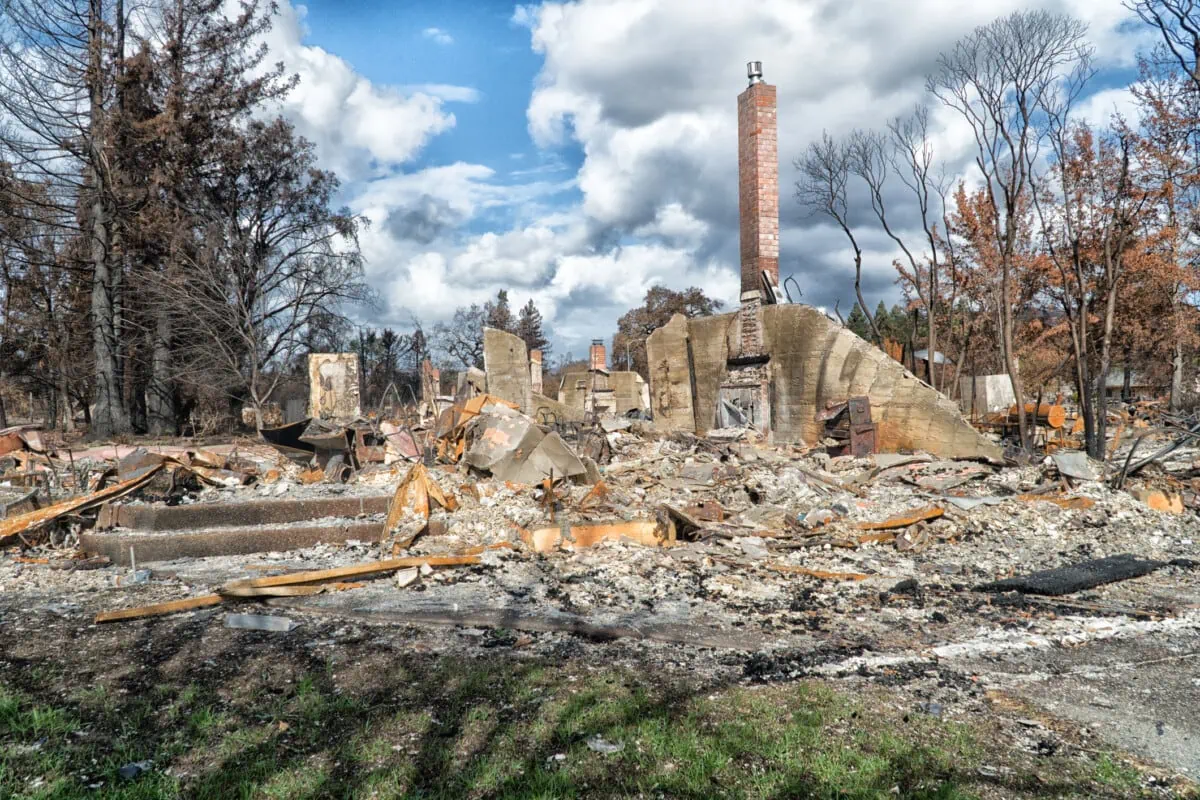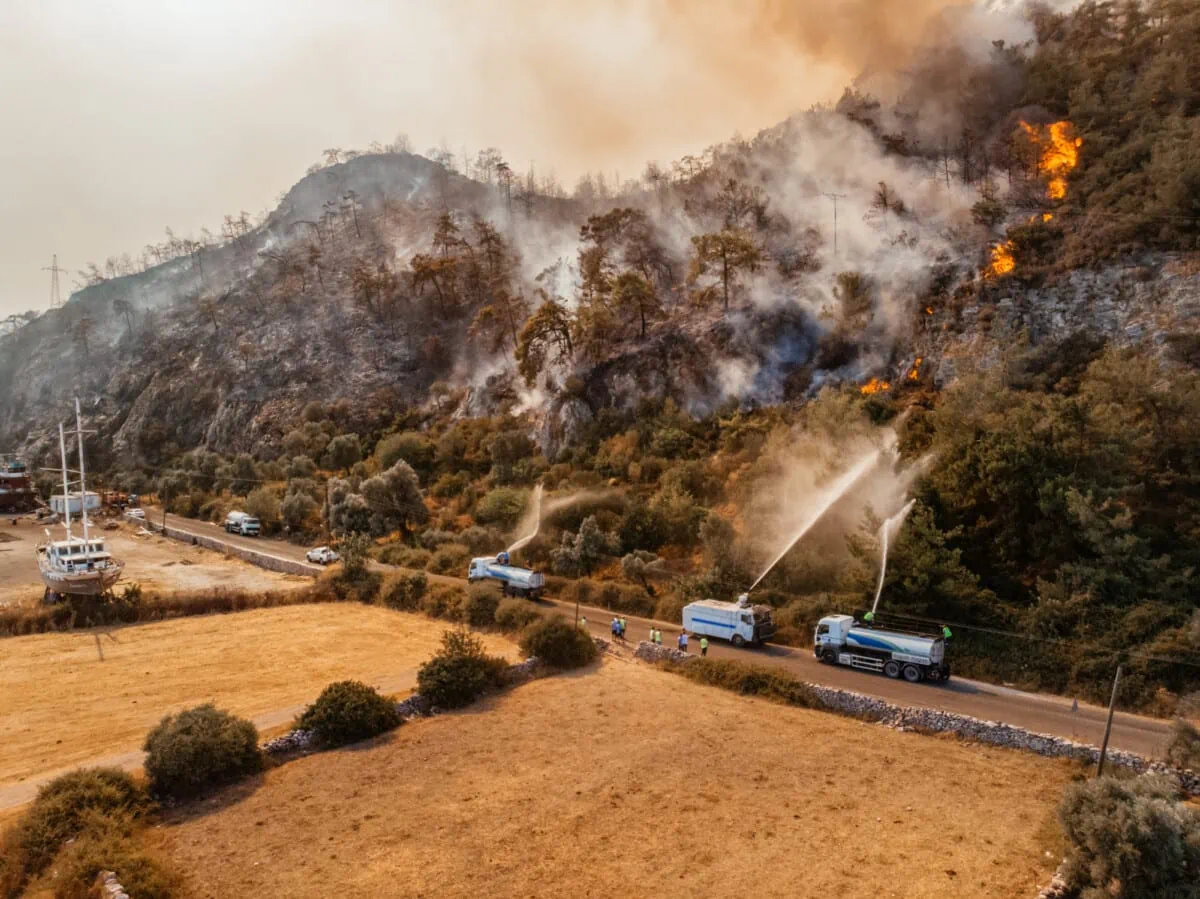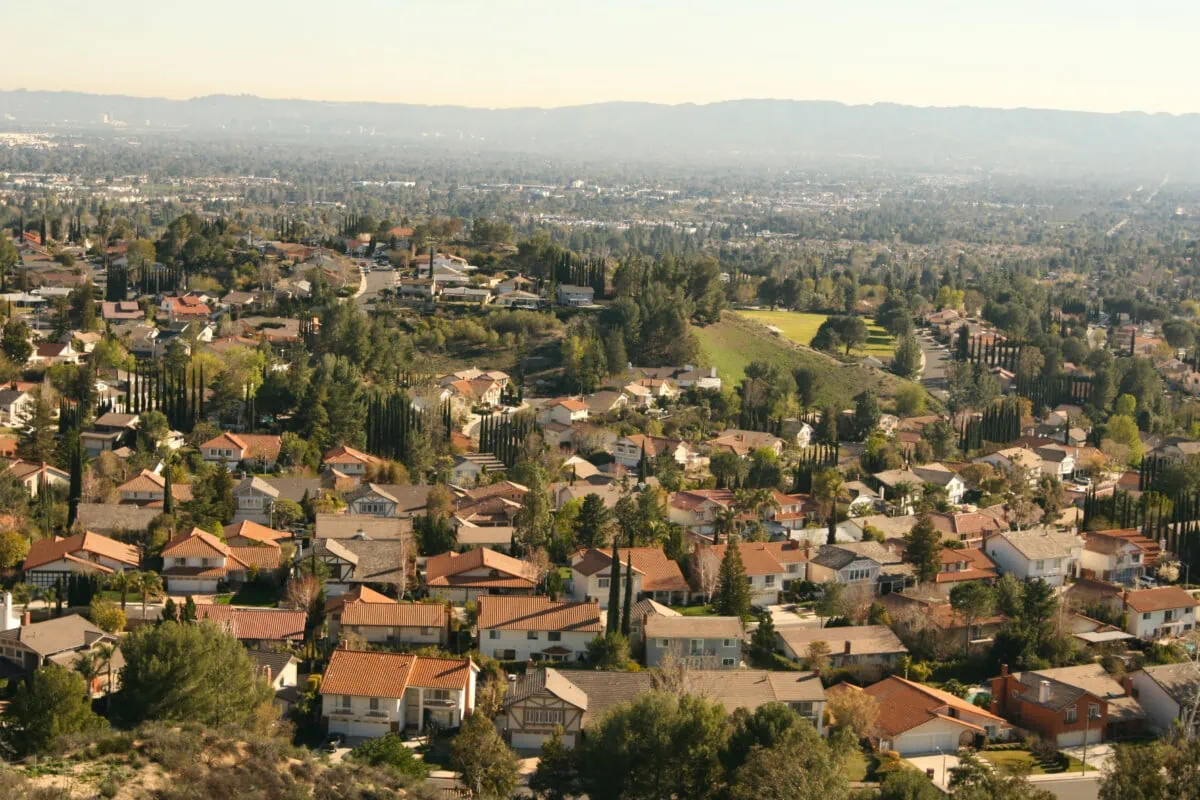Fires are becoming increasingly frequent and destructive across the nation, particularly along the West Coast. Your homeowners insurance usually includes fire insurance, safeguarding against all accidental blazes. However, the specifics of your coverage can vary depending on where you live, especially if you own a home in wildfire territory.
So what is fire insurance, what does it cover, and how is it changing? If you live in a city with high-fire risk, this article has everything you need to know.
What is fire insurance?
Fire insurance is a specific type of insurance coverage that compensates homeowners for accidental damage caused to their property by fire. It’s often included as part of a standard homeowners insurance policy, but depending on where you live and the specifics of your policy, the coverage can vary.
Does homeowners insurance cover fires?
Yes, homeowners insurance usually covers all fires, including wildfires. In fact, fire coverage is one of the foundational elements of most standard homeowners insurance policies. Here’s a breakdown of what’s generally covered in the event of a fire:
- Dwelling coverage: This covers the structure of your home, including walls, roofs, and built-in appliances. If a fire damages or destroys any part of the physical structure of your home, this portion of your policy would help pay for repairs or rebuilding.
- Personal property coverage: This covers your belongings inside the home, such as furniture, clothing, electronics, and other personal items. If these are damaged or destroyed by fire, your policy would help compensate you for their value, either at actual cash value (which accounts for depreciation) or replacement cost (which doesn’t factor in depreciation), depending on your policy.
- Detached structures: If you have other structures on your property, like a garage, shed, or fence, these are typically covered under a standard homeowners policy if they’re damaged or destroyed by fire.
- Loss of use or additional living expenses: If a fire makes your home uninhabitable, this portion of your policy can help cover the costs of living elsewhere temporarily, such as hotel bills, meals, and other associated expenses.
- Liability protection: If someone is injured on your property as a result of the fire, or if you accidentally cause a fire that damages a neighbor’s property, this part of your policy may cover legal or medical expenses.
What doesn’t fire insurance cover?
While fire insurance is designed to provide broad coverage for damages resulting from fires, there are certain exclusions and scenarios that might not be covered by a standard policy. Here are some common limitations:
- Intentional fires (arson): If the fire is determined to have been set intentionally by the homeowner or with their knowledge, the insurance will not cover the damages.
- Vacancy: If a property has been vacant for a specified period (typically more than 30 days), damages from a fire might not be covered. Insurance companies see vacant properties as higher risks for vandalism, theft, and neglect.
- War and nuclear hazard: Damages resulting from war, including undeclared war, civil war, insurrection, rebellion, or revolution, are typically excluded. Similarly, fires resulting from nuclear reactions or radiation are not covered.
- Other perils: If a fire results from an earthquake, landslide, power outage, neglect, faulty design or materials, or ordinance of law, insurance may not cover your property.
How is fire insurance changing?
With the increasing frequency and intensity of wildfires, especially in places like California, insurers are reevaluating their risk models. Recently, State Farm stopped offering homeowners insurance entirely in California in early 2023. This has led to much higher premiums from other companies in some areas and even refusal to insure homes in particularly high-risk zones. These changes follow the most destructive wildfire seasons in the state’s history, with 11 of the state’s 20 largest wildfires occurring in the past five years.
This follows a trend in other states across the country ravaged by climate change-induced disasters. For example, in parts of Kentucky ravaged by flooding in 2022, flood insurance rates are set to quadruple. Similarly, insurance companies in Florida and Georgia are raising rates due to more frequent hurricane damage.
Insurance markets are regulated by local and federal governments, and many states and counties are struggling to keep their residents insured. In areas frequently hit by wildfires, state governments are stepping in to ensure homeowners can access affordable fire insurance. This might include offering subsidies, such as through high-risk pools.
What can you do?
If your home is at risk of wildfires, there are actions you can take to lower your insurance rates and help keep your coverage. Installing fire protection devices, like smoke detectors, fire alarms, sprinkler systems, and smart home security systems can all help lower your premiums.
It’s also essential to understand the specifics of your coverage. The more transparent and comprehensive your policy is, the better off you are in the case of a disaster.
Final thoughts
Fire insurance is a vital safety net for homeowners, ensuring that they can rebuild and recover after a devastating fire. As the world changes, so too does the landscape of fire insurance. Homeowners should regularly review their policies, stay informed about changes in the industry, and consider the evolving risks and benefits associated with their property.





Leave a Reply